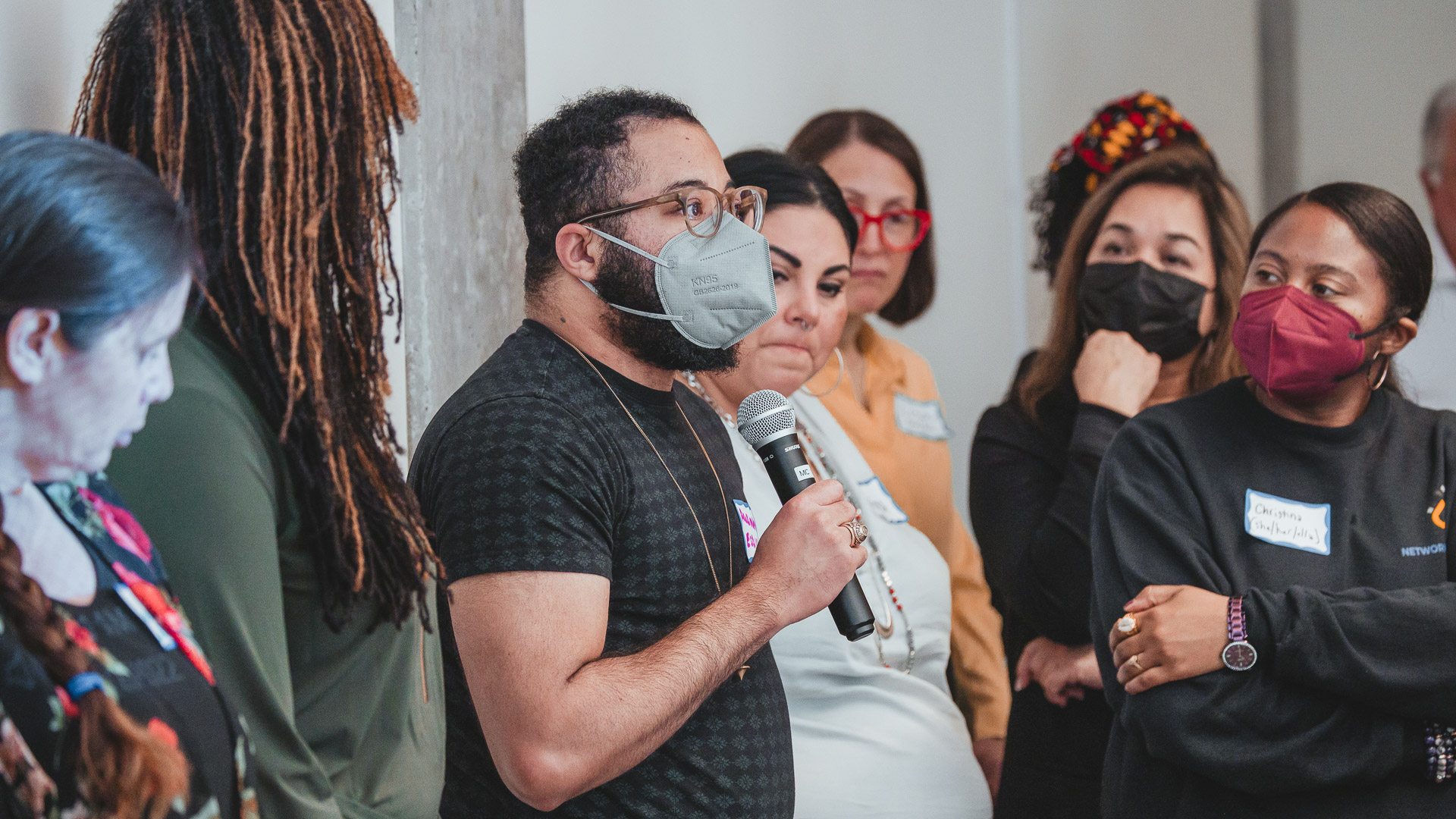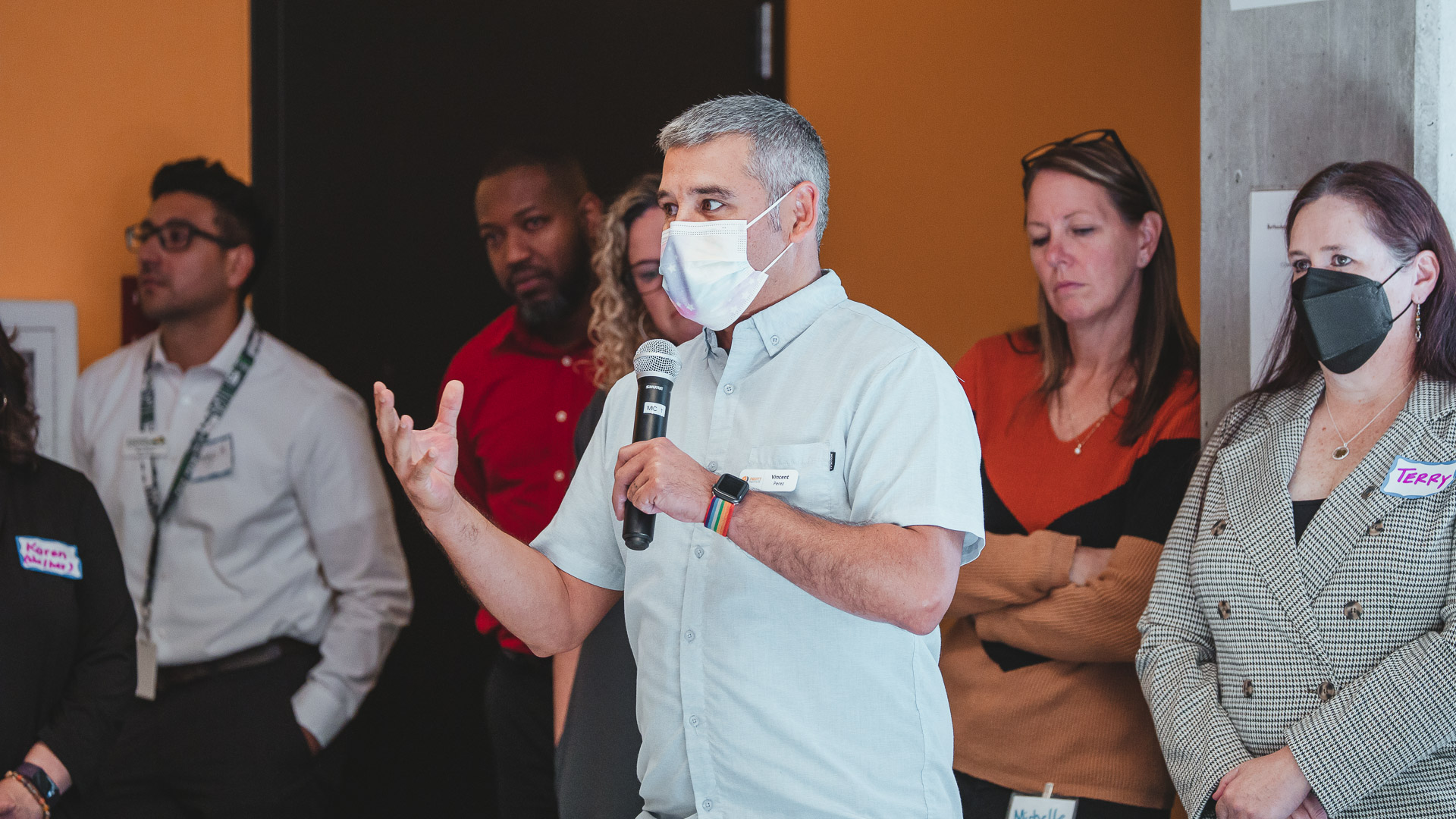
In Educational Service District 113, Director of Diversity, Equity and Inclusion Dr. Auzimuth Jackson believes it’s the right time and place and that they have the right people moving the LEADER Initiative forward. “We’re very fortunate,” he says. “In our five counties of Lewis, Thurston, Mason, Pacific and Grace Harbor, we have a passionate group focused on racial equity and fostering inclusion and belonging in the educator workforce.”
Jackson attributes the cohesiveness of Capital Region ESD 113’s partnerships with Evergreen State College, Saint Martins University, Pacific Lutheran University, Yelm Community Schools, North Thurston Public Schools, Tuwaduq Cultural and Research Institute, Equity Institute, Timberland Regional Library (TRL) system and Centro Integral Educativo Latino de Olympia (CIELO) to a strong why that centers on students. “When we go into classrooms, even in pre-transition to kindergarten, we see our students in their brilliance,” says Jackson. “Unfortunately, we can also predict their outcomes based on immutable facts of identity, and we don’t want that.”

Strong leadership from people like Superintendent Dana Anderson and Board Chair Dr. Al Cohen of District 4 supported the creation of a strong why alongside the mission and goals adopted in 2020. The mission seeks to ensure excellent and equitable education for all students through service and collaboration. The goals focus on closing gaps, growing people, influencing change, and eradicating racism. That leadership and clarity attracted Auzimuth to his position and gives the partners a clear sense of where they fit in, personally, professionally and within larger contexts.
Jackson personally brings a rich array of experiences to this work. “I was born in Fort Hood, Texas and come from a strong Black military family,” he says. “I’m called to service through education, serving and supporting interests on the domestic fronts, while my family members do the same abroad.” A doctoral student in 2020, he was the first in his department to defend his dissertation on Zoom. From there, he and his partner spent the remainder of the pandemic in England, where she was finishing her degree.
“We were leaning into, observing and participating in the global conversation around racial antagonism,” he says. From that global perspective, he came to Washington. Here he appreciates that ESD 113 represents a complex cross-section of the state. “We have rurality, coastal, we are budding up against the Cascades — then there’s the I-5 corridor, between the Capital and our friends across Puget Sound,” he says. “Embedded in that is continued work amongst seven sovereign nations, recognized and unrecognized, plus a crossroads of sectors, industries and occupations.”
That multiplicity exists within and alongside other complexities. “There’s the inescapable backdrop of the continuing transitions and challenges posed by COVID,” says Jackson. “We also have that continuation of the global to local reckoning and national election time with so many socio-political tinder issues.”
Jackson talks about the awareness in ESD 113 of the challenges of this journey related to restorative justice and the deep fatigue of those continuing to navigate systemic racism and lift their voices. He also feels energized by the current momentum. “We find ourselves in a critical, explosively generative moment,” he says. “Washington has put together interesting institutional alignment from the government on forward.”
He appreciates how the LEADER Initiative fits in as a data-driven response. “We recognize the problem, and we recognize that each of those data points is a person, with a legacy of a story to tell but also an expertise to bring,” he says. “We know from data that it’s not only necessary to alleviate and eliminate this problem, but the benefits of doing so will radiate across all classrooms in service of all students.”
Examples of current progress in the region include CIELO preparing to open a new headquarters in Mason and Thurston counties to increase support to families who navigate Indigenous and Spanish languages. The TRL system provides culturally informed events that are supportive of language justice. North Thurston Public Schools is building infrastructure around DEI with a new DEI director. Yelm Community Schools is building capacity to serve military families.
“It’s one thing for organizations to have individual successes,” he says. “But to see them as a collective of wrap-around services with positive impacts across the community takes it to another level. ESD 113 is happy to convene such talent and support infrastructure.”
That collective progress relies on individual connections and a willingness to work together in new ways. “I continue to be struck and uplifted by how personal relationships have sustained networks across 113 and in Washington,” says Jackson. “I’m learning and appreciating how partners are leaning into growth. Folks who share meals often or meetings professionally are delighted to form new associations connecting those two.”
Find out how you can Get Involved, explore our virtual Events, or sign up below for news updates about the LEADER initiative.
Get the latest — subscribe to our electronic newsletter.
By signing up you agree to receive occasional communications from College Spark Washington. You can unsubscribe at any time. We respect your right to privacy. Please review our Privacy Policy
